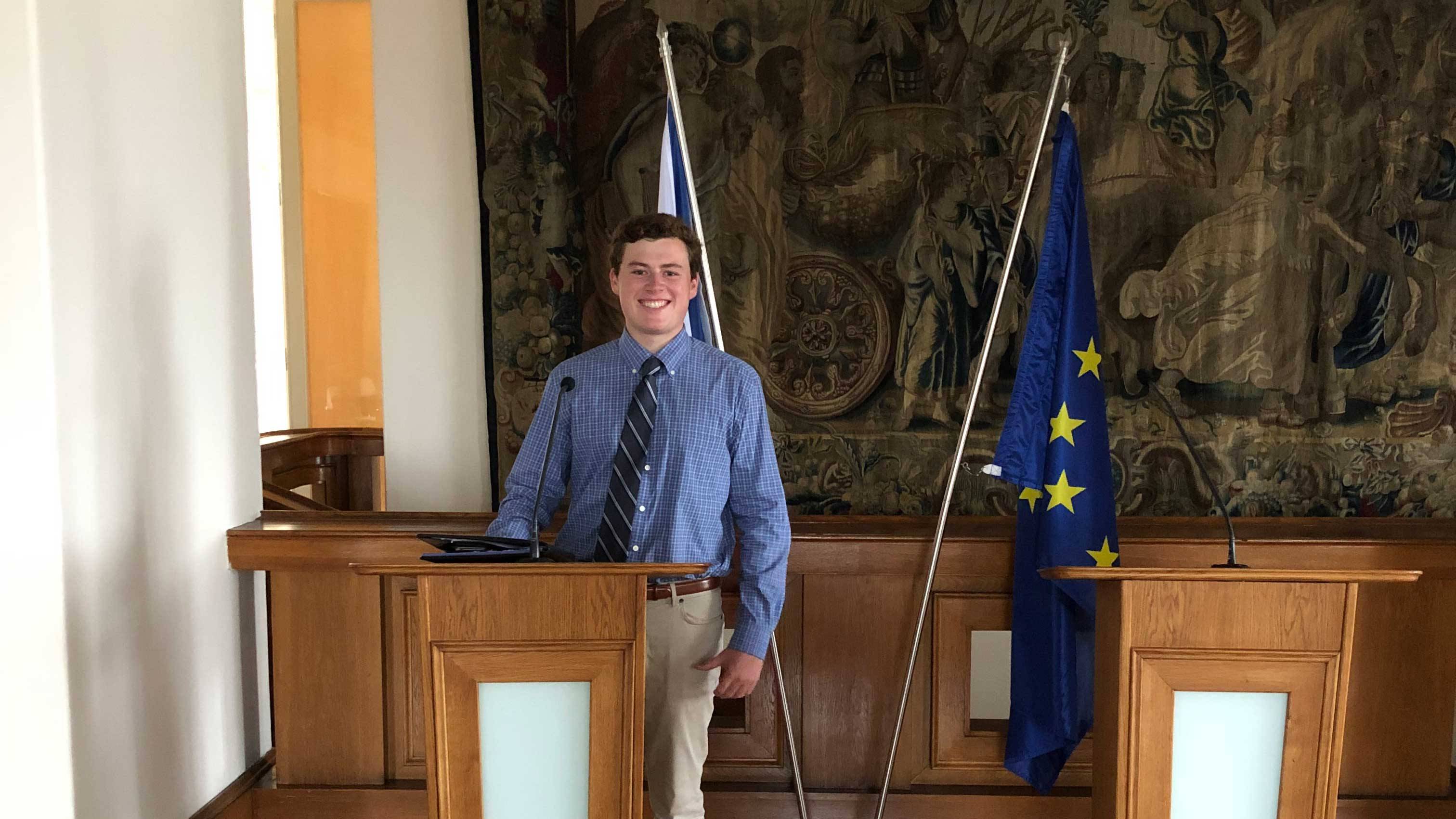During the summer, Colgate students are applying their liberal arts know-how in a variety of real-world settings, and they are keeping our community posted on their progress. Political science and peace and conflict studies double major Chris Burke ’21, from Wellesley, Mass. describes his research in Prague as a Stone Fellow with the Center for Freedom and Civilization.
This summer, I am conducting research through Colgate’s Center for Freedom and Western Civilization as a Stone Fellow. My research focuses on the intersection of climate change and western security, exploring militarization and emergent security dilemmas in the Arctic Circle.
With this project, I have blended the environmental science experience I gained through Colgate’s diverse liberal arts curriculum with my major specialization, studying the emergence of realism and decline of cooperation in a newly accessible Arctic region.
My research focuses on melting sea ice in the Arctic and the new security dilemmas posed by this development, specifically looking at military build-up, resource competition, Arctic security institutions, and contested shipping lanes. With the help of faculty at the CEVRO Institute — a university in Prague, Czech Republic — and Colgate’s own Harvey Picker Professor of International Relations Fred Chernoff, I am interviewing prominent military leaders, ministers in the Czech department of defense and foreign affairs, and leading scholars in the field of Arctic security.
I look forward to sharing my full findings with the Colgate community in September. In these early days of researching, I have found that the existing Arctic dynamic favors the West, as four out of the five Arctic coastal states are North Atlantic Treaty Organization (NATO) members that coalesce to manage relations with Russia. However, non-Arctic players have the potential to disrupt this balance and eliminate existing Western leverage.
Despite the region’s history of cooperation, climate change has exacerbated the strain of insufficient security institutions and tangible militarization, as well as the risk of a resurgent Russia looking to reassert itself as a global superpower. To ensure Western security in the era of climate change, leaders must encourage Russian predictability, establish more concrete security institutions, and institute a robust, but peaceful, naval presence in the region.
My skills as a researcher have been greatly enhanced through this fellowship — particularly my ability to conduct interviews, network with scholars and leaders, and integrate a large number of sources into a cohesive paper. After examining more than 60 scholarly sources, interviewing five security experts, and working with domestic and international faculty, I have fine-tuned my ability to extract and analyze information from a wide variety of sources.
